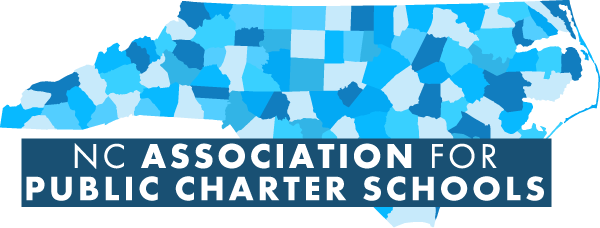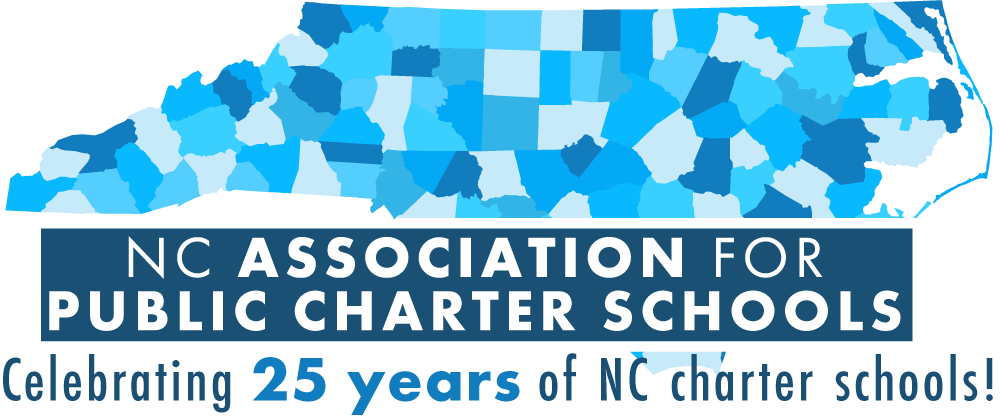2025 Long Session Session Legislative PrioritiesThe NC Association for Public Charter Schools is committed to being a voice for charter schools across the state. Each year we create a legislative agenda in preparation for the upcoming session of the General Assembly and share it with the charter school sector and the public. With the support of our school membership, legislative committee, and lobbying team, we build relationships with legislators and key stakeholders and educate them on current issues and challenges faced by charter schools. Our goal is to achieve equitable state policy for North Carolina’s charter schools.
Enrollment Growth Funding as a Standard State Budget ItemSUMMARYIn 2023, the Department of Public Instruction adopted a new a new public school financing model known as “funding in arrears,” which provides state funding based on last year’s student enrollment figures. EXAMPLEThe lack of a budget adjustment bill in 2024 left many public charter schools without the funding needed to cover the costs of the school’s growth in enrollment. With a state budget line item that secures sufficient growth funding, public charter schools’ enrollment will not be stymied due to the fear of inadequate funding.
Zoning Challenges that Create Barriers to Charter School ConstructionSUMMARYChapter 160D of the North Carolina General Statutes outlines the authority for development regulations. Certain aspects of the current law can be used to limit or restrict new school or facility construction, which means construction of a new school may require rezoning, a special use permit, and/or site plan review. EXAMPLENorth Carolina’s charter school sector is the fastest growing in the country, including over 85,000 names on waiting lists. However, facilities and zoning challenges have delayed the opening of new schools. In 2023, Senate Bills 675 and 692 would have required all zoning ordinances to allow public school buildings to be permitted, but neither of those two bills were enacted. Re-visiting the provisions in these bills is a priority. Grant Funding for Charter School TransportationSUMMARYUnder current law G.S. 115C-218.42 charter schools with student enrollment of at least fifty percent (50%) of its students residing in households with an income level not in excess of the amount required for a student to qualify for the federal free or reduced-price lunch program may apply for reimbursement of up to sixty-five percent (65%) of the eligible student transportation costs incurred by the school. Student transportation costs that are eligible for reimbursement include transportation fuel, vehicle maintenance, contracted transportation services, and transportation personnel salaries. This bill would require the following:
EXAMPLEA total of $2,475,832 was distributed to eligible schools from the Charter School Transportation Grant Program in the second week of February 2024. Given the number of eligible schools that applied for the grant (65) and the amount of eligible expenses for reimbursement (over $8 million), the percentage of eligible expenses was significantly reduced to meet the total funds available. For the 2024 award, charter schools received approximately 33% of eligible expenses. Increasing the grant funding available and increasing the maximum total amount awarded to eligible schools would relieve the pressure of transportation costs on eligible schools’ budgets. Additional Funding for WNC Charter Schools Affected by Hurricane HeleneSUMMARYLast November, Hurricane Helene had a devastating impact on 25 Western North Carolina charter schools. Although the General Assembly allocated relief funding, many needs remain. They include:
EXAMPLECharter schools’ budgets continue to be strained by the unexpected costs of the natural disaster. NCAPCS supports Governor Stein’s proposal to fund K-12 summer learning programs, funding should be expanded to address other critical needs.
Provide Funding for SROs in All PSUsSUMMARYSchool Resource Officer (SRO) funding is currently available through a grant to Elementary and Middle Schools only. Funding is awarded through an application process where districts and charter schools apply for funding based on their individual needs. In the 2023-24 school year, the state funded a total of $8,049,977 through school safety grants to charter schools. EXAMPLECurrently the average cost of an SRO is $55,000. Low wealth PSUs have a 4:1 match requirement. This means that the PSU must match with local funds of $11,000. If a school is not low wealth, it is on a 2:1 match, meaning that they must provide $18,334 per SRO. There are 96 charter schools who applied and received funding for an SRO. Legislation should increase funding so that more schools could provide SROs and High Schools would be eligible. Uniform Criminal Background Checks for ChartersSUMMARYUnder current law, G.S. 115C-296 does not provide the State Board of Education authority to require applicants of charter schools to be checked for a criminal history. The bill would require the following:
EXAMPLEMany NC charter schools face issues when they attempt to do background checks that mirror the current district process, resulting in faulty results. It was recently reported that an individual who was serving on an applicant charter school’s board was just released from federal prison unbeknownst to the charter. Pursuing uniformity in background checks for boards and staff would relieve the stress many schools face.
NCDOT Timely Reimbursement to Charter SchoolsSUMMARYUnder current law charter schools have no logical process by which schools can be reimbursed for expenses incurred at the department’s request. EXAMPLEThe DOT is required by law to reimburse schools for any roadway improvements it requires. These requirements often cost hundreds of thousands of dollars, which charter schools must finance through their operating budgets. However, once schools request reimbursements, they are left uninformed about when they can expect those funds to be reimbursed. The delay in receiving reimbursement impedes pursuing educational programming which would be beneficial to students. A legislated timeline for reimbursement would assist schools in financial planning. Recommendation: 3 months.
|


